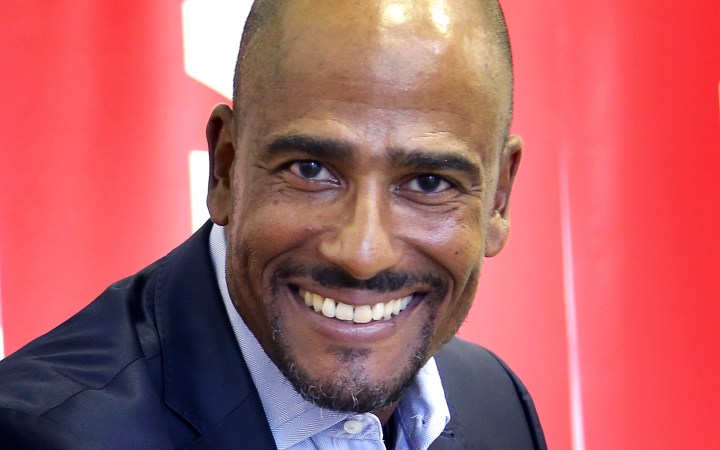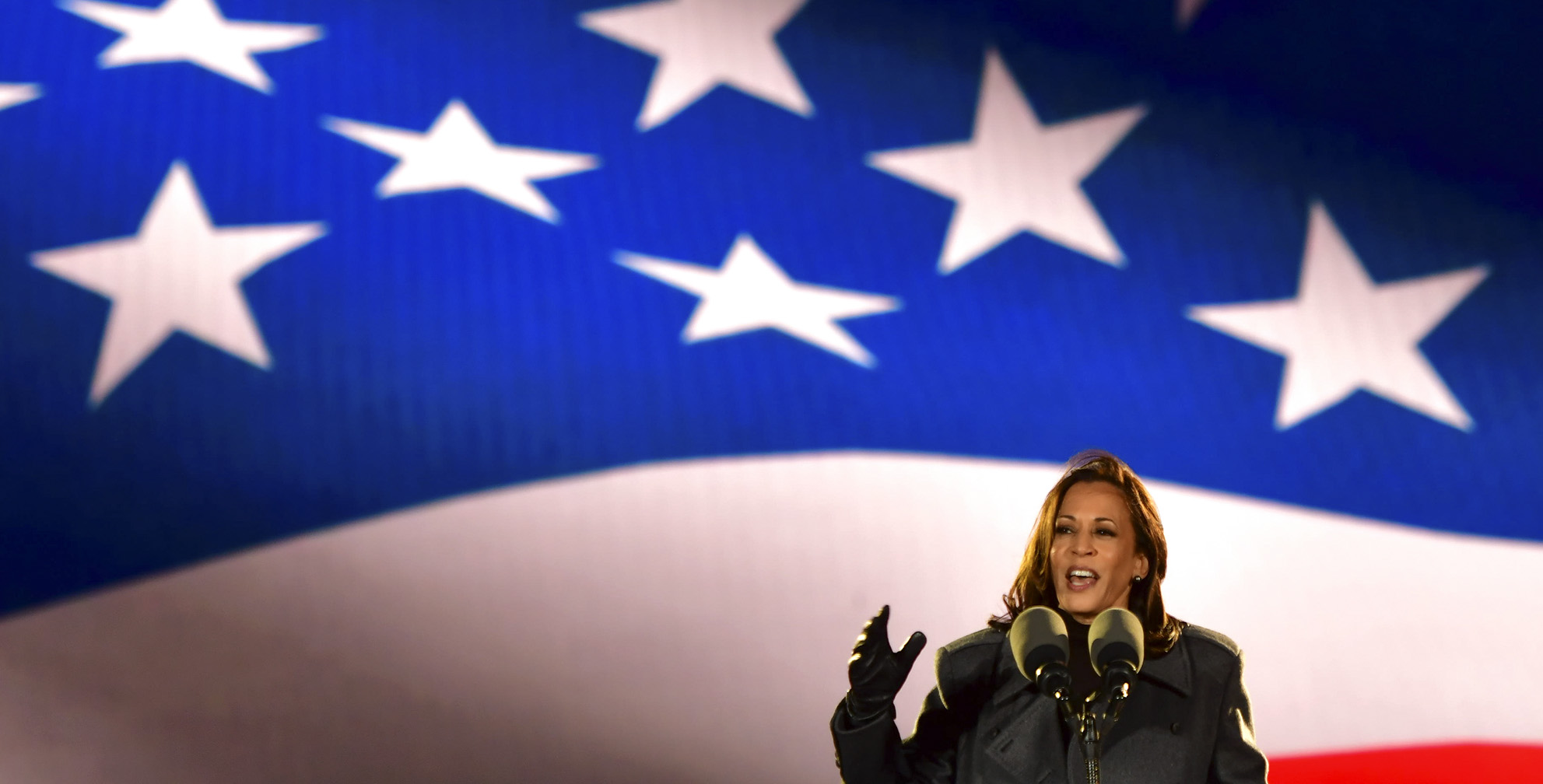Maverick Citizen Op-ed
US Election: An immigrant family’s tale –my Sister Soldier and Hometown Heroine

Growing up in the United States offered Ricardo Gressel privileges not enjoyed by most young people outside the US, but I never could have imagined what living in Berkeley, California, would do to expose me to true leadership.
My parents were born and raised in Colon, Panama and emigrated to the United States in 1953 along with my brother, José. They were seeking a better life for themselves and for their young family. Because of family already living in the San Francisco Bay area, they settled in Oakland, California, near the border of Berkeley.
My sister, Flor, was born in 1955, and soon after mom, dad, brother and sister moved to central Berkeley becoming only the second people of colour (POC) family to move into the neighborhood.
Although we are POC, we did not readily refer to ourselves as black, even though anyone who saw us would easily classify my family as such. I guess it’s that Latin-American thing that doesn’t fit neatly into the fallacious race boxes. We knew we were not white, but there just weren’t enough Afro Latinos represented on TV shows growing up. Nor was there acceptance from some black people who grew up in America and couldn’t identify with our family living room antics, Salsa dancing or in the kitchen enjoying mom’s delicious arroz con pollo with plantains and fresh milk dad would tap from a coconut.
To top it off, dad was hellbent on landing a job based on his ability and would not accept systemic racism as a deterrent to his goals. Although he was often shunned by architectural firms where he applied for work because he was classified as black, he never once cried “racism”. He adamantly refused to be lumped into a box that would judge his colour instead of his craft.
Berkeley’s inhabitants are diverse. I mean really diverse. In this small city known for its prestigious California University and spectacular views from its hillsides looking out over the bay to the San Francisco skyline and the iconic Golden Gate Bridge, we were a collection of cultures rather than members of rigid racial labels.
Don’t get me wrong, my family recognised the injustices against black people, made plain by despicable atrocities in the 1950s and 1960s of police brutality tormenting our fellow brothers and sisters. So, we proudly stood for Blackness and against racism, but we were just very pro Latino.

PHILADELPHIA, PA – NOVEMBER 02: Democratic vice presidential nominee Sen. Kamala Harris (D-CA) speaks at a drive-in election eve rally on November 2, 2020 in Philadelphia, Pennsylvania. (Photo by Mark Makela/Getty Images)
Born black in the US
I was born into civil rights legislation in 1965 during the tumultuous anti-Vietnam war protests, race riots and assassination after assassination of prominent leaders seeking change by speaking out against the white capitalist status quo, “The Establishment,” or as my sister would put it, “The Man”. My sister was particularly influential in my life, and I admired her rebellious behaviour as a teenager protesting for racial and gender equality.
My brother was shipped off to Vietnam during the draft when I was born, and returned home when I was just two years old. He was the coolest cat that gave me a spirit to take on anything in life! After all, he was one of the few soldiers that lived to tell me the stories first-hand even though some of his recollections, I would learn later, stretched the imagination!
Growing up in a Panamanian culture in Berkeley gave me the unique opportunity to create my own identity as African-Latin American, but by my late teens, I politically classified myself as black. I say politically because I couldn’t accept white males in power as the best or only option for leadership.
Growing up in the Bay Area, and especially Berkeley, exposed me to more than just an opportunity for a better life that my parents wanted for me and my siblings – it displayed clear and obvious examples of the country’s best leaders in school, sports and in the community who happened to be POC.
Kamala Harris and ‘The Man’
Kamala Harris is one of those leaders from my neighborhood who stands out as everything I wanted to be growing up: courageous, smart and not afraid to speak up against “The Man”. Like me, she was born of immigrant parents; more than just black and more than just a woman, Harris represents humanity. She defines leadership: listening, learning and empathetic in her response to serve others.
One of Harris’s best friends, Carole Porter, who Kamala calls “the other little girl on the bus”, was my first girlfriend from high school, and we remain close friends till today. Carole grew up on the same block as Kamala in West Berkeley. As part of Berkeley’s comprehensive desegregation program, the two girls rode the bus together from West Berkeley to Thousand Oaks Elementary School, a public school in a more prosperous neighborhood in northern Berkeley which previously had been 95% white, and after the desegregation plan went into effect became 40% black.
In high school I remember Kamala and her sister Maya as bright, ambitious and very attractive. Kamala was the quintessential big sister to Maya, and their close-knit family ties were as evident then as they are now – even during the Biden/Harris campaign with its huge challenges and inevitable toll on personal life.
Like my parents, I emigrated. It wasn’t a popular decision for me to move from the US to South Africa, but in hindsight it was my destiny. Social protests, like my sister engaged in during the 1960s, became part of my voice and political action in 1985 during my sophomore year. I chose to volunteer to help block trustees’ cars from leaving campus at my alma mater, Stanford University. Our Stanford Out of South Africa (SOSA) campaign demanded trustees disclose their interests in South Africa for the ultimate cause spawned by college campuses across the United States in the 1980s, Divest in South Africa Now! movement.
It’s been over 20 years since I lived in America. South Africa has become my new home. I have celebrated democracy here and abroad, including the US. However, in trying to dismantle apartheid from the US as a teenager and supporting the new dispensation in South Africa as an adult in the late 1990s, I’ve come to realise that there is a minority elite (siding with “The Man”) that is prepared to undo all the good and effective work of democracy for the sole purpose of increasing their personal wealth.
When my family and I (especially my sister) fought against injustices, we were fighting for equality and freedom. Although economic freedom is vital to the equation of justice, we never sought “money gods” to solve problems, but rather servant leaders who put themselves after the people they serve.
I don’t spend my time fighting against individual money mongers. I have come to learn the importance of fighting with empathetic leaders for justice. It is apparent to me that growing up in Berkeley gave me more than a “tolerance” of others, it afforded me the opportunity to celebrate them.
Through this Covid-19 crisis and in the lead-up to the elections in the United States, I have become more pro-humanity, pro-empathy and pro-servant leadership than ever.
I am convinced that Kamala Harris’s growing up in Berkeley at a time when the promise of equality and justice for all was at the forefront of society and politics, has also given her the required values of leadership needed (now more than ever) that come from celebrating a nation of diversity and not “The Man”.
We finally have in Harris a true leader who represents the people and not the elite.
The Biden/Harris ticket brings hope, not divisiveness; collective good, not personal greed; resources for equality, not meritocracy that omits historic injustices; representation for an inclusive future, and not elitism.
Thank you my Sister Soldier and Hometown Heroine.
I voted.
DM/MC
Ricardo Gressel (aka WarriorRic) has lived in Johannesburg, South Africa for over 20 years. He is a father of four children and grandfather to two grandkids. A Motivational Speaker, MC and Organisational Change Facilitator, he is well known as Chief Inspirer of the Warrior Race, Brand Ambassador of the Spar Women’s Challenge and commentator for Comrades Ultra Marathon. He has worked with several corporate brands in Africa for change management using tailored internal brand engagement strategies. His passion is youth leadership development, and he has spoken at over 250 primary and high schools throughout South Africa. Ricardo is a proud contributor to Democrats Abroad South Africa. Twitter: @WarriorRic; Instagram: @thewarriorric; Facebook: @WarriorRic; [email protected]; www.warriorric.com
Like what you’re reading? Sign up to the Maverick Citizen newsletter and get a weekly round-up sent to your inbox every Tuesday. Free. Because paywalls should not stop you from being informed.




















Comments - Please login in order to comment.